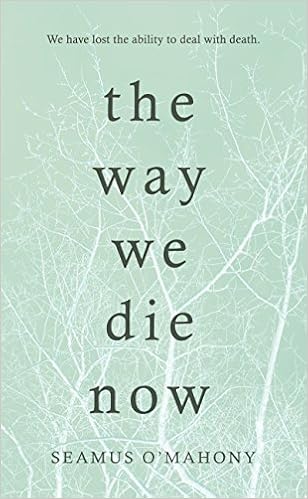In both cases the syringe-driver displaced my naive expectations.
People do not have the ideal, the philosopher's death. They fade, suffer, their bodies fail and it's messy and sometimes horrible. And so to Irish consultant Seamus O'Mahony's anthropological stories of dying.
Here are some excerpts from The Times's review:
"As a doctor, O’Mahony says, “there is little reward, professionally or emotionally, for doctors who tell patients the truth” about the end of a patient’s life and what to expect. “Nearly all families, and many patients, prefer the Lie.” Most of what he reads on the subject bears little resemblance to the reality. This is his corrective."O’Mahony is not a fan of assisted dying - in thirty years he claims never to have encountered a case where this would have been appropriate, and he is sceptical about advance directives - you just don't know what your wishes will be when the time comes.
...
"The worst kind of death you could have “without exception”, he says, is an acute death on a busy, understaffed general ward. Another cause of a “bad” death is family interference. O’Mahony describes the situation with an elderly woman with dementia and pneumonia who is brought to hospital by her family. He tries to persuade the family that at her age and in her condition, she should not be admitted to intensive care, where she will have to have highly invasive procedures: a breathing tube and mechanical ventilation.
"They aren’t convinced and so she is admitted. “Her death was farcical and undignified,” he says and he doesn’t try to veil his anger: “Although I had made it clear to the family that we would not attempt cardio-pulmonary resuscitation, when the poor woman finally died, two of the daughters attempted their own cack-handed version of cardiac massage and mouth-to-mouth resuscitation.”
On the other hand, he's extremely opposed (as are we all) to medical intervention without end, noting that doctors themselves frequently choose the least medical treatment when diagnosed as terminal.
CPR is a particular dread.

No comments:
Post a Comment
Comments are moderated. Keep it polite and no gratuitous links to your business website - we're not a billboard here.